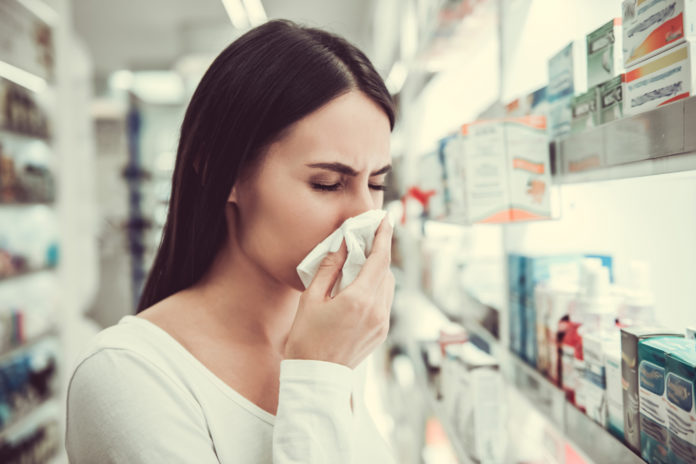Do Immune-Boosting Vitamins Really Treat the Cold?
Well-known immune-boosting vitamins and minerals include vitamins A, B6, B12, C, E, folic acid, selenium, and zinc. But do these immune boosters actually shake off that pesky cold? The research is inconclusive, but not
According to a 2013 review involving 29 trials and over 11,000 participants, routine vitamin C supplementation reduce the incidence of cold. Researchers did find, though, it may be useful for people exposed to brief periods of severe physical exercise.
Furthermore, research published in the Open Forum Infectious Diseases suggests zinc may speed up the recovery process of common cold symptoms. WebMD also suggests vitamin C, zinc, and Echinacea may help shorten the length of colds by a day or so.
A further review in the BMJ highlights the significance of vitamins A, B6, B12, C, D, E and folic acid and the trace elements iron, zinc, copper and selenium in regards to supporting the immune system. But instead of focusing on their intake amidst a cold, the premise focuses on the importance of preventing deficiencies at any point of time to reduce the susceptibility of colds.
Exploring Immune-Boosting Supplements
Despite the inconclusiveness regarding the efficacy of taking immune-boosting vitamins and minerals amidst cold, the sniffles Emergen-C is a popular product and and claimed to “contain a combination of selected vitamins and minerals to provide immune system support and help keep you feeling the good.”
Nonetheless, Emergen-C contains vitamin C, vitamin E, zinc, manganese, B vitamins, along with electrolytes and probiotics. In fact, an original Super Orange Emergen-C packet supplies 1,667 percent of the daily value (DV) of vitamin C, 500 percent of vitamin B6, 417 percent of vitamin B12, and 25 percent of thiamin, folic acid, pantothenic acid, and manganese.
Furthermore, a serving of Airborne delivers 1667 percent of vitamin C, 100 percent of vitamin E, 53 percent of manganese, 53 percent of zinc, and 40 percent of zinc.
Too Much of a Good Thing?
There really is no doubt these sort of vitamins and minerals are beneficial to supporting the immune system. But too much of a good thing also exists.
Water-soluble vitamins, including vitamins C and B, are often excreted through the urine if the body does not use them. However, there is some evidence 2,000 mg of vitamin C can lead to negative side effects, including diarrhea, and high doses of vitamin B-6 over long periods of time can be very toxic and cause temporary or permanent nerve damage.
Fat-soluble vitamins (vitamins A, D, E, and K), on the other hand, can accumulate in the body and have a greater risk of toxicity. And while vitamin A toxicity is unlikely from diet alone, supplementation can increase the risk of hair loss, increased pressure in the brain, blurred vision, bone pain, and liver damage.
Also often assuming these nutrients are being obtained through a well-balanced diet, health experts encourage consumers to avoid supplements that provide more than 100 percent of the DV for any vitamin or mineral. Doing so may offer some sort of benefit without significant concerns, along with being cost-effective.
But if slugging down those Emergen-C drinks in hopes to drown out that cold, you are taking it well more vitamins and minerals than needed and consequently, placing yourself at much greater risk of adverse side effects.
The Bottom, Boosting Line
Detailing the efficacy of immune-boosting supplements is means to discourage consumers away from these sort of products, but rather enlighten their reality and encourage consumers to always abide by the instructions.
Moreover, each brand does recommend a suggesting serving size and use as directed (Emergen-C does also warn to not surpass 2,000 mg of vitamin C a day), along with disclosing such statements have not been evaluated by the Food and Drug Administration and the products are not intended to diagnose, treat, cure or prevent any disease.
But rather than expecting a miracle and speedy recovery, know warding off and kicking a cold involves more than slugging back these powders and tablets when the sniffles start to takeover. And rather than taking action amidst a cold, take preventative measures now.
Ultimately, filling the diet with colorful, nutrient-rich foods, exercising regularly, managing stress, sleeping the recommended seven to nine hours each night, and practicing good hygiene can all support a healthy immune system to ward off colds.









